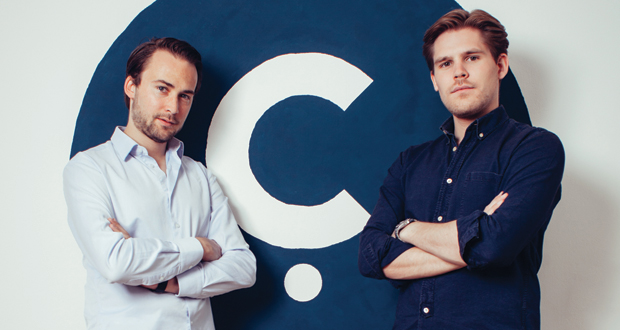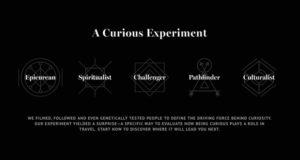The hotel industry is defined by its movers and shakers. Whether someone introduces an industry-disrupting technology or just executes a truly flawless renovation, those are the hoteliers and properties that people will remember. Every year, so much is accomplished by those in the hotel industry that it’s next to impossible to cover it all. Here, LODGING turns the spotlight on some of the people, properties, and companies that innovated hospitality technology in 2017.
Fornova
 Fornova taps into the power of data to help hotels understand and navigate the vast distribution landscape and regain control of their rates. The global company uses machine learning to aggregate and analyze data at scale, providing insights into a hotel’s online price integrity, visibility, and rankings, and identifying any wholesaler leakage. The company’s platform also segments market intelligence to make recommendations on which channels and rates are the best fit for a hotel’s direct marketing efforts at any given moment. “There are a whole lot of solutions to help hotels with deciding what’s the right price for the room. But it is difficult to get a holistic view across both direct and indirect distribution channels and actively manage the connectivity side—taking a hotel’s rates and distributing them,” Dori Stein, CEO of Fornova, explains. He adds that Fornova is working on automating and optimizing a hotel’s distribution in real-time, automatically shifting budgets to avoid spending on hotels out of parity until the automation platform identifies and rectifies the problem.
Fornova taps into the power of data to help hotels understand and navigate the vast distribution landscape and regain control of their rates. The global company uses machine learning to aggregate and analyze data at scale, providing insights into a hotel’s online price integrity, visibility, and rankings, and identifying any wholesaler leakage. The company’s platform also segments market intelligence to make recommendations on which channels and rates are the best fit for a hotel’s direct marketing efforts at any given moment. “There are a whole lot of solutions to help hotels with deciding what’s the right price for the room. But it is difficult to get a holistic view across both direct and indirect distribution channels and actively manage the connectivity side—taking a hotel’s rates and distributing them,” Dori Stein, CEO of Fornova, explains. He adds that Fornova is working on automating and optimizing a hotel’s distribution in real-time, automatically shifting budgets to avoid spending on hotels out of parity until the automation platform identifies and rectifies the problem.
Suiteness

 Founded in 2014 by Kyle Killion, Suiteness is currently the only online platform where guests can book multi-bedroom inventory and connecting options that hotels don’t already offer. Developed by a small tech company that focused strictly on bookings and flights, Suiteness was approached by lodging customer bases to provide more inclusive hotel choices for family vacations, business trips, and other traveling groups. “People kept asking us for access to three-bedroom and four-bedroom suites that they couldn’t find anywhere online,” Killion says. “We started a small pilot, and it took off instantly.” In just the first month, Suiteness out-performed their prior year of business in just hotel suite bookings. “We thought it would become a small portion of what we do, but it’s turned into our main job,” Killion says. Suiteness analyzes the layout of each of their hotels, recording what kind of suites it has, how many are available, and how they can be connected. Then, they personally book the multi-bedroom suites or connectors for customers. “Hotel feedback has been great, because we’ve increased their ADR significantly, and therefore their revenue. We also provide the full price of the rooms at the time of purchase, which decreases room cancellations,” Killion explains.
Founded in 2014 by Kyle Killion, Suiteness is currently the only online platform where guests can book multi-bedroom inventory and connecting options that hotels don’t already offer. Developed by a small tech company that focused strictly on bookings and flights, Suiteness was approached by lodging customer bases to provide more inclusive hotel choices for family vacations, business trips, and other traveling groups. “People kept asking us for access to three-bedroom and four-bedroom suites that they couldn’t find anywhere online,” Killion says. “We started a small pilot, and it took off instantly.” In just the first month, Suiteness out-performed their prior year of business in just hotel suite bookings. “We thought it would become a small portion of what we do, but it’s turned into our main job,” Killion says. Suiteness analyzes the layout of each of their hotels, recording what kind of suites it has, how many are available, and how they can be connected. Then, they personally book the multi-bedroom suites or connectors for customers. “Hotel feedback has been great, because we’ve increased their ADR significantly, and therefore their revenue. We also provide the full price of the rooms at the time of purchase, which decreases room cancellations,” Killion explains.
conichi
 What sets Uber and Lyft apart from other taxi service apps? According to Maximilian Waldmann, CEO and founder of conichi, the difference lies in the ease of use and intelligence behind the apps, which improves both rider and driver satisfaction. Today’s business travelers have come to expect the seamless experiences that apps like Uber facilitate, Waldmann says. His company has designed an app that connects business travelers and hotels to remove any friction from a guest’s stay. It integrates into a hotel’s property management system to provide mobile check-in, check-out, and secure payment while also allowing hotels to upsell and directly communicate with guests through push notifications. Guest profiles are available to hotels so that staff can prepare and personalize their experiences prior to arrival. “Formalities are eliminated and payments are done via the push of a button to focus on conversations, service, and, ultimately, being a great host,” Waldmann explains. The company plans to expand beyond Europe into the U.S. and China over the next two years.
What sets Uber and Lyft apart from other taxi service apps? According to Maximilian Waldmann, CEO and founder of conichi, the difference lies in the ease of use and intelligence behind the apps, which improves both rider and driver satisfaction. Today’s business travelers have come to expect the seamless experiences that apps like Uber facilitate, Waldmann says. His company has designed an app that connects business travelers and hotels to remove any friction from a guest’s stay. It integrates into a hotel’s property management system to provide mobile check-in, check-out, and secure payment while also allowing hotels to upsell and directly communicate with guests through push notifications. Guest profiles are available to hotels so that staff can prepare and personalize their experiences prior to arrival. “Formalities are eliminated and payments are done via the push of a button to focus on conversations, service, and, ultimately, being a great host,” Waldmann explains. The company plans to expand beyond Europe into the U.S. and China over the next two years.
Curio Collection

 Curio Collection by Hilton took a science-based approach to brand development and marketing in September by sponsoring a scientific study for insights into what drives traveler curiosity. They partnered with a laboratory to facilitate the DNA testing of 30 travel enthusiasts to determine if they had the DRD4-7R gene, also known as the “Wanderlust Gene,” which is associated with people who have an itch to travel. They also worked with these enthusiasts to discover five different curiosity types. Once the types were established, Curio created a quiz that allowed travelers to learn which curiosity type they embodied and which Curio properties would be a good fit for their preferences. As of press time, the Are You Curious? Quiz has been completed nearly 24,000 times. Stuart Foster, vice president of global brand marketing for Curio Collection by Hilton, says that the information gleaned from the quiz is invaluable to Hilton. “We can harness this insight to better customize and recommend one-of-a-kind discoveries to our guests to enhance their entire experience—from planning the perfect trip to actually visiting a property and discovering activities, amenities, and services that suit their curiosity type,” he describes.
Curio Collection by Hilton took a science-based approach to brand development and marketing in September by sponsoring a scientific study for insights into what drives traveler curiosity. They partnered with a laboratory to facilitate the DNA testing of 30 travel enthusiasts to determine if they had the DRD4-7R gene, also known as the “Wanderlust Gene,” which is associated with people who have an itch to travel. They also worked with these enthusiasts to discover five different curiosity types. Once the types were established, Curio created a quiz that allowed travelers to learn which curiosity type they embodied and which Curio properties would be a good fit for their preferences. As of press time, the Are You Curious? Quiz has been completed nearly 24,000 times. Stuart Foster, vice president of global brand marketing for Curio Collection by Hilton, says that the information gleaned from the quiz is invaluable to Hilton. “We can harness this insight to better customize and recommend one-of-a-kind discoveries to our guests to enhance their entire experience—from planning the perfect trip to actually visiting a property and discovering activities, amenities, and services that suit their curiosity type,” he describes.
Top photo courtesy of conichi











